We cannot solve problems in the same way they were created. - Albert Einstein
PlayReal is an online/offline augmented reality game, that uses a global social network, coupled with real world assignments. PlayReal hands its players (10 - 16 year olds) tools and skills to engage in local problem solving of global environmental and societal issues.
The three verbs "cooperate, craft, learn" characterize living and working in PlayReal. In all quests and assignments, cooperation is the main focus, collaborative discussions are followed by crafting, crafting leads to learning. Knowledge and skills are only interesting and desirable if they can be used to do or make something new, to add something of yourself in whichever form. This process is the "learning-crafting" cycle and it favours an exploratory learning style.
The Idea
PlayReal offers customized episodes that involves children, adults and organisations in solving serious real-life issues through a massive multiplayer online and offline game (MMOOG). The first of its kind, and with just as unique a goal. To help create solutions for a sustainable planet.
Introduction
Children solve problems while they play. And without thinking twice about it. In the gaming realm, it is natural for them to keep trying until they get results. At PlayReal we want to tap into that energy, and at the same time help young people to use/learn skills.
PlayReal provides an online and offline environment where children and other members of the civil society can engage in playful conversations to solve the world’s environmental and social problems. The game invites them to share and collaborate online and in the real world. Young people are visionary, innovative, think out of the box and are not afraid of radical change, so they can contribute a lot in designing the kind of solutions, new governance models and institutional frameworks needed for implementing sustainability in the world. The issues can appear complicated for youth to grasp but our game narrative helps communicate the messages in an easy and fun way.
PlayReal can work in ways that spark the imagination and empower thought and action. Both children and other experts from civil groups are less afraid of coming up with innovative ideas if the problems are framed in a fantasy world. The involvement of industry specialists, relevant organisations and policy makers bring expert knowledge to the game and help in carrying the solutions to the real world.
Collective intelligence: Cooperation + Sharing
Cooperation and sharing is the heart of PlayReal. Cooperation is the ability to engage in dialogue to create something together from dialogue, something which transcends the power and ability of the individual. Cooperation refers to the social and relational aspects in PlayReal, the relationships between the workers (players), parents, co-workers, game and the forcefields surrounding that, the societal context, local, regional, national and global. Cooperation doesn't happen by chance, it must be learned and organised. If we experience that cooperation leads to something better and more beautiful, then a force will awaken within, everything happens by itself, by nature, organically. The game becomes everyone's, a community.
The emphasis on collaborative simulation, learning by doing, the pleasure players feel in crafting and in solving problems while “thinking on their feet” are all behaviours that - if properly harnessed - can have a lasting and decisive impact on solving today’s global societal issues.
How does it work?
PlayReal is designed to combine four converging social and technological phenomena: Web 2.0, social networks, synthetic worlds, and semantic applications - all of this applied in a real world environment that is coupled to the online environment. An interactive narrative much like an Alternate Reality Game bonds a synthetic world, a social gamespace and a physical installation- the Geodome (a travelling Geodesic tent). All three spaces are designed to immerse the players in the narrative, as well as to provide an environment for interaction and collaboration among all participants. Game dynamics are used as mechanisms to encourage creativity and influence positive behaviour. In the problem-solving process, PlayReal players gain awareness of societal issues and learn critical real-life skills.
In MMOGs, tightly-knit groups of players forming clans work together to solve big epic quests and solve monumental puzzles. In the game, everyone is aware of other player’s skills and powers, and this proves essential. Similarly, PlayReal developed a social semantic engine that provides a mapping of players’ skills and knowledge to increase the chances of collective intelligence arising. Our engine will invite players (both youth and experts) to join when a problem is relevant to them. This way, we facilitate the creation of communities with multidisciplinary skills to solve the issue at hand, and we connect initiatives around the world with similar goals.
Game process
1) Organisations submit local social and environmental issues that need an out-of-the-box approach.
2) Most pressing issue(s) is selected and the PlayReal team develops a game Episode.
3) Using the PlayReal social semantic engine, a community of both youth and members of organisations with common goals and multidisciplinary skills/knowledge is created to crowdsource the problem.
4) This community is immersed in the Episode using the game mechanisms and the virtual world. They interact with each other via the PlayReal social network.
5) The Geodome arrives leading to a string of events, workshops and gatherings around the local issue. It functions as a portal for the collective knowledge and ideas from the virtual community.
6) The issue is solved in the game and ideas to bring local solutions to the real-world are presented.
Adventures
Adventures are quests that generally involve conducting research about the way things are currently done on Earth, and about the way they were done in the past. Sometimes alternative scenarios are proposed in order to come up with answers to specific questions and solutions to particular problems. Team members are encouraged to share information and discuss their findings so that they can coordinate their efforts.
There is no predetermined way to address the challenges that are presented in an adventure (field research, interviews, Internet resources, individual brainstorming, discussion and debate, etc.). Teams are also free to present their findings in a medium of their choice (text, audio, video, photography, drawing, mixed media, etc.). The end results are then posted on the social gamespace so that all participants may benefit from each group’s work.
Community Centre
The PlayReal Community centre is situated in Amsterdam Nieuw-West at Osdorperweg 665 as a bridge between the city and the country side with 2,5 acres of forest and garden. Starting from May 2010 it offers an interesting program for players and non-players which makes it more valuable to connect, participate.
PlayReal offers a variety of workshops for Public (Exploring/ Learning/ Creating) to improve awareness of ourselves, our environment, and our connection with other people.
The community Centre drives on participation of non-playing characters (NPC's) like City Plot (Planting workshops).
Initiative and partners
Initiative: Ahead of the Game: Claudia Rodiguez Ortiz, Alex de Jong and Minne Belger.
Development partner: The Beach / Diana Krabbendam
Development team: Joost Burger (platform), Pablo Garcia (story), Marcus Aurelius Veenhuysen Scharff (copy), Adriaan Verstijnen (design & construction).
Funding: Gamefonds
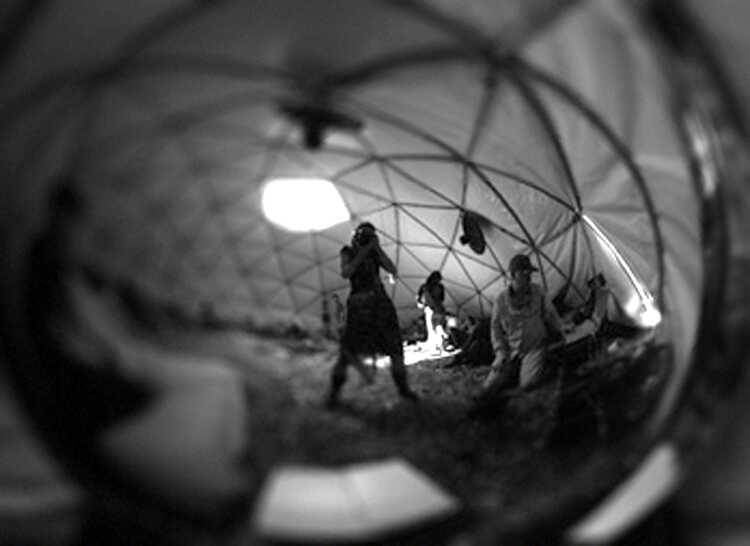
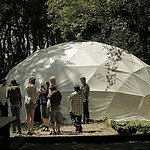
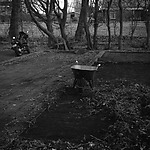
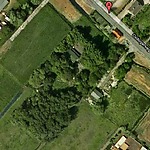
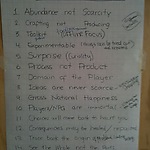
Laat een reactie achter